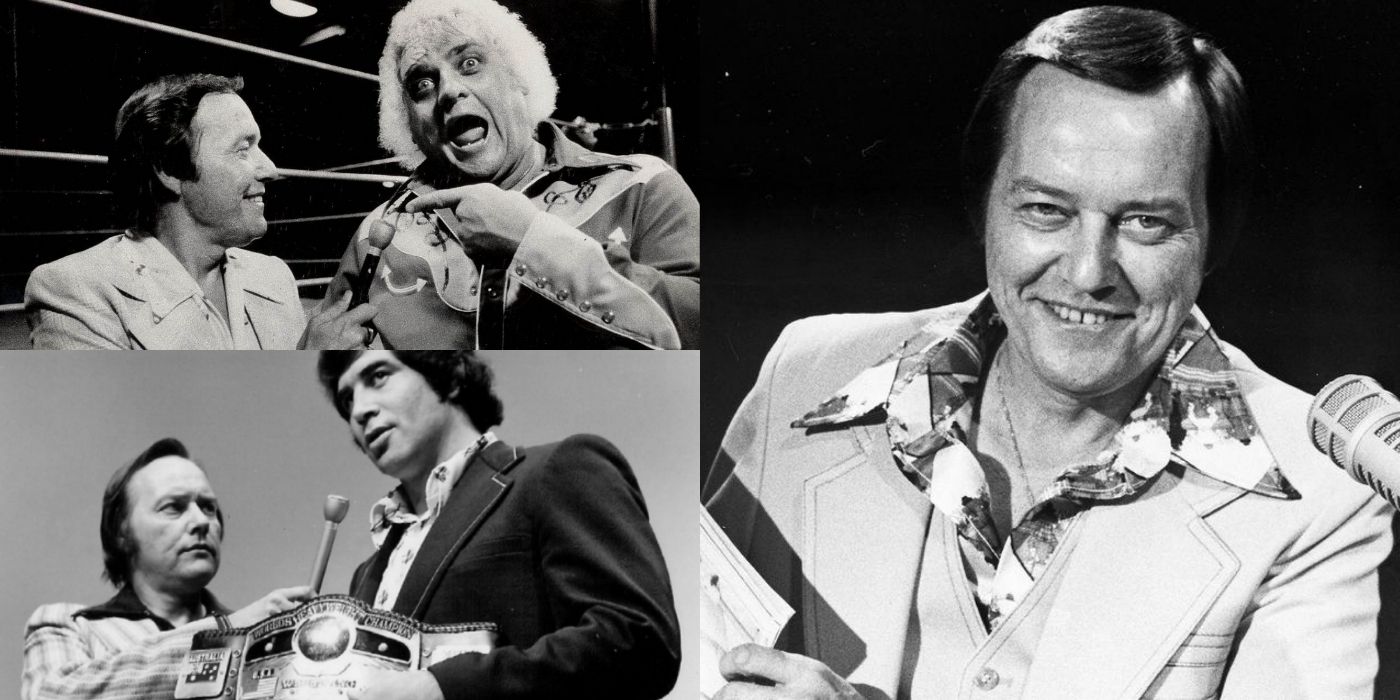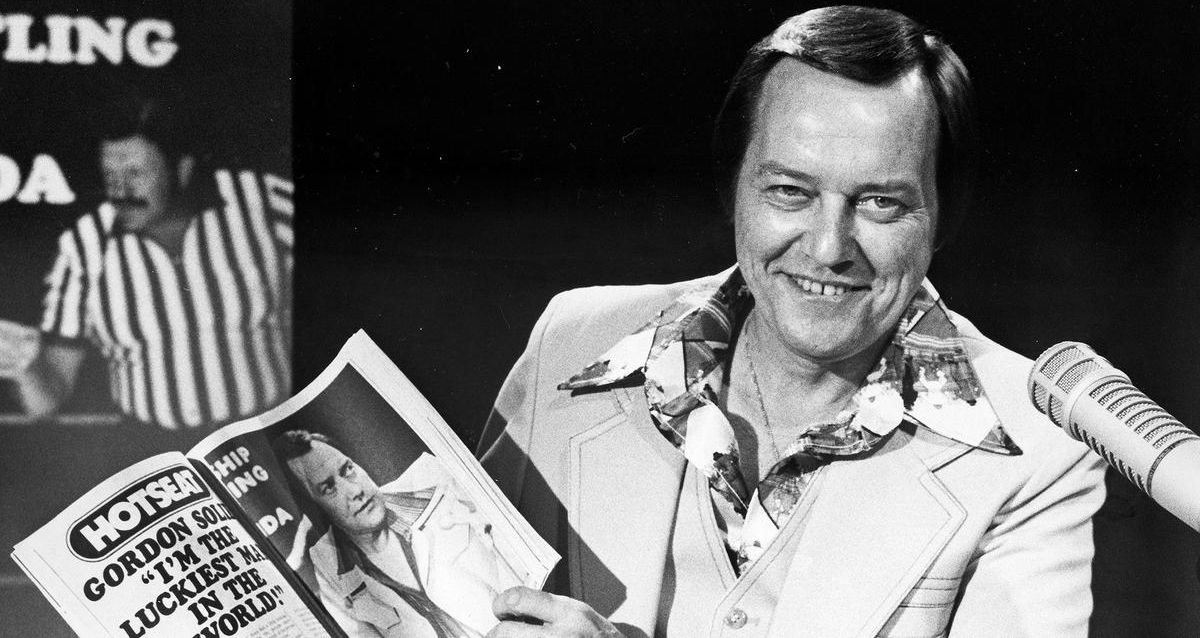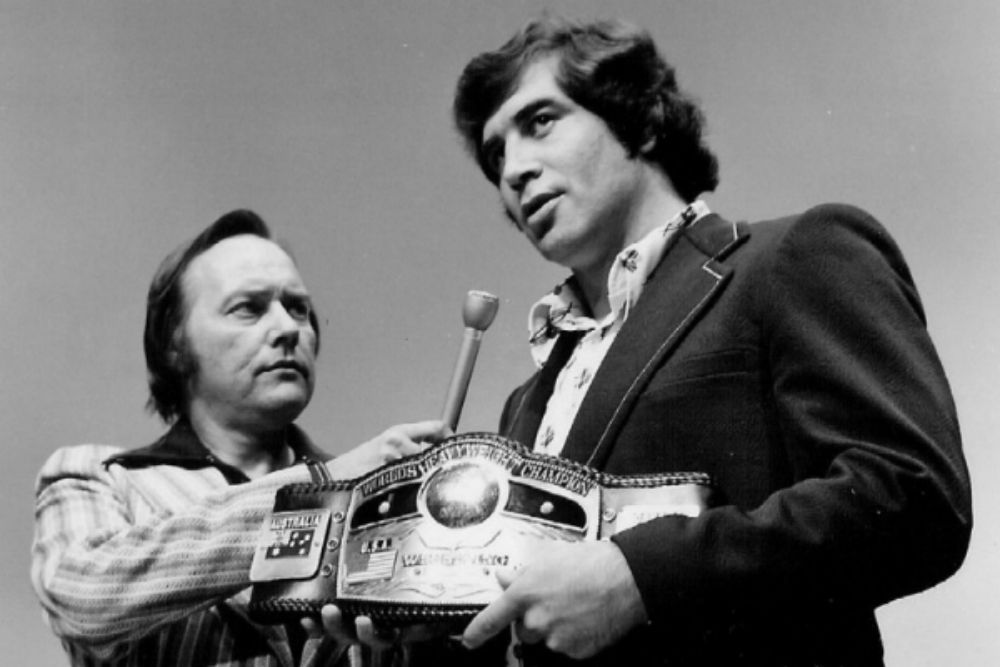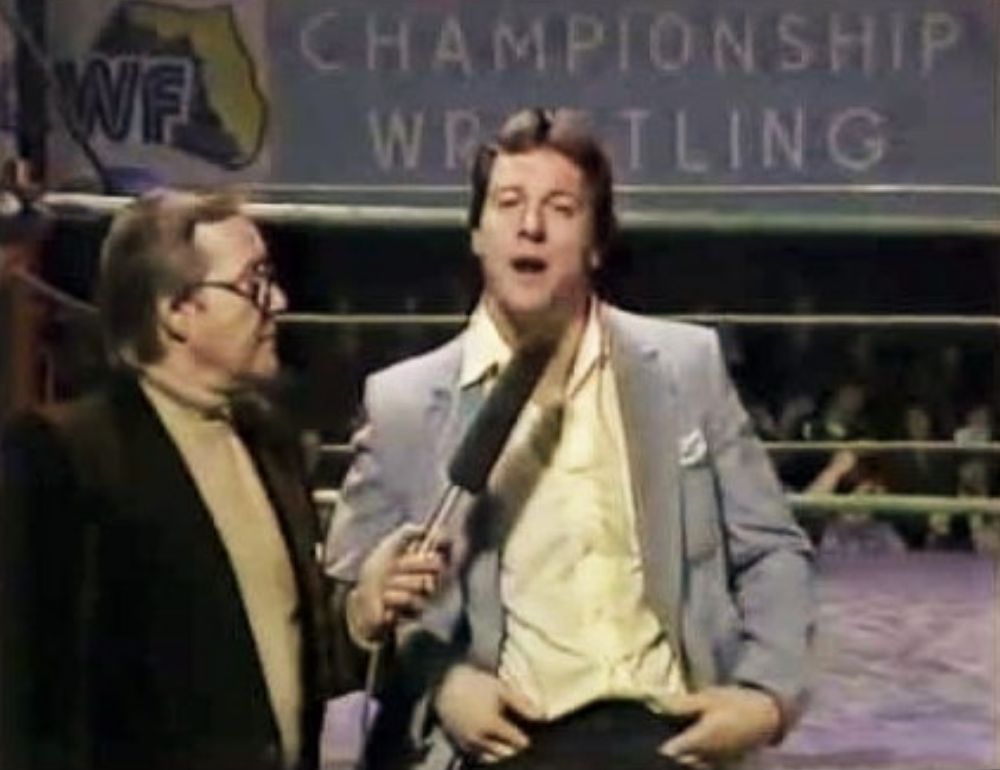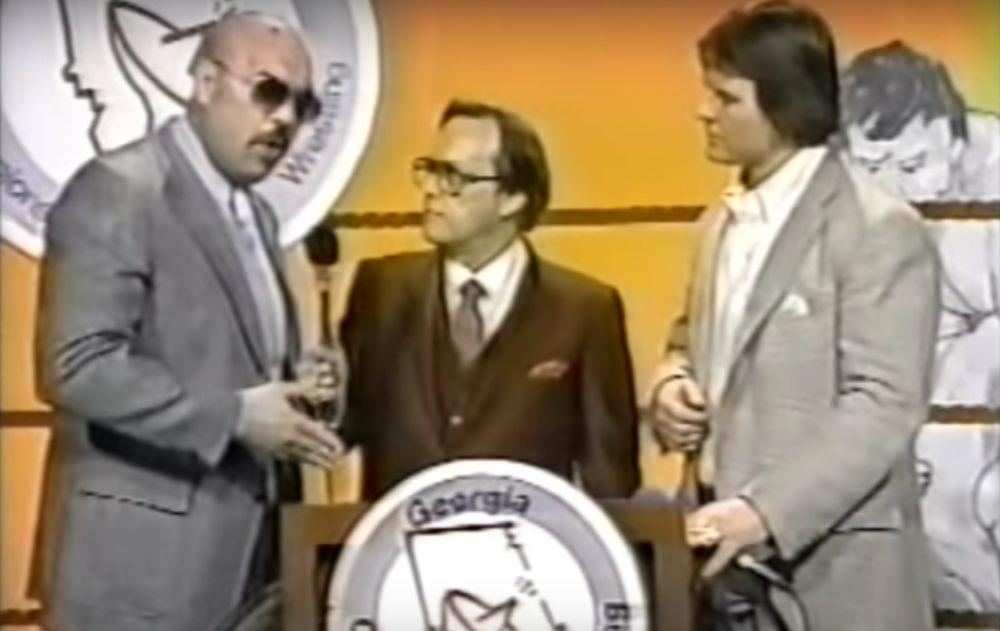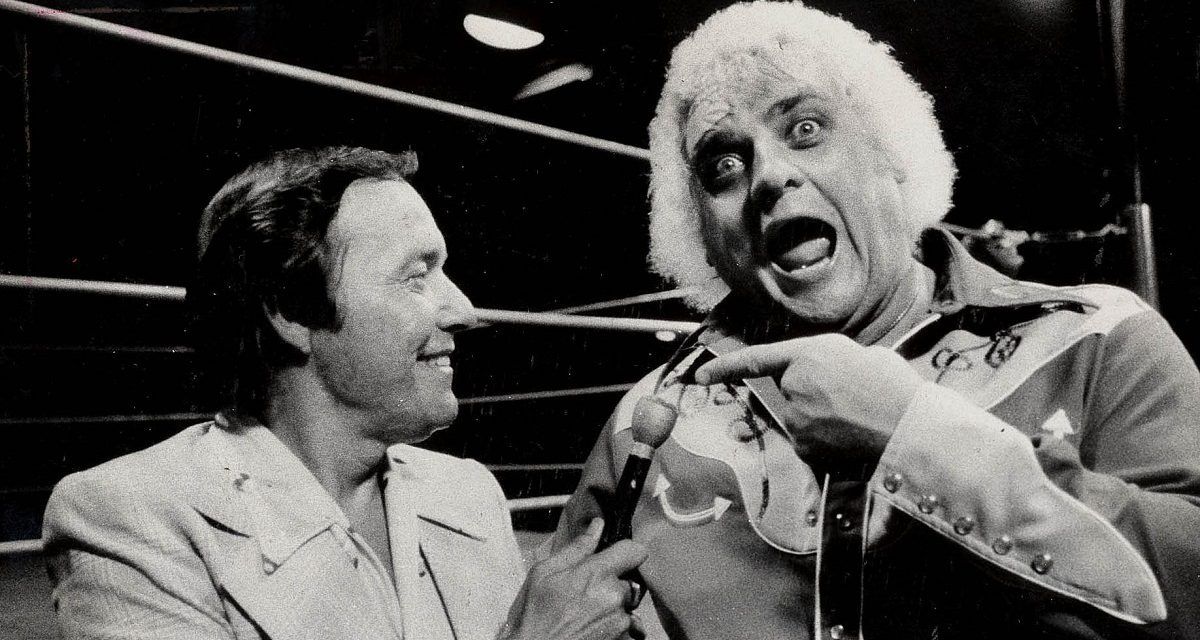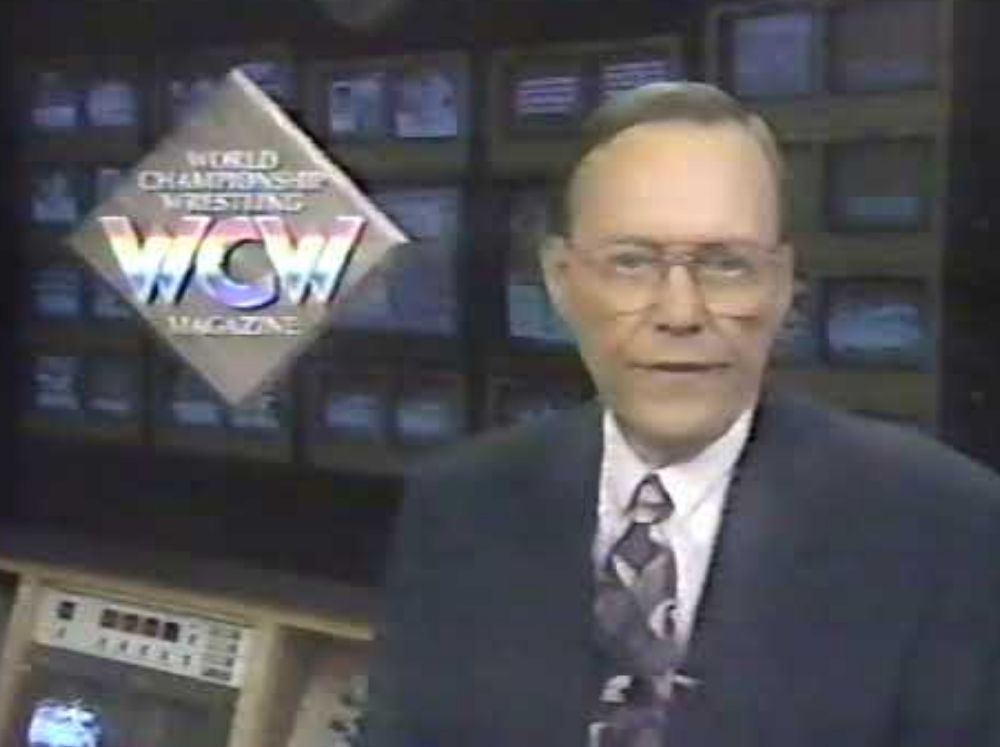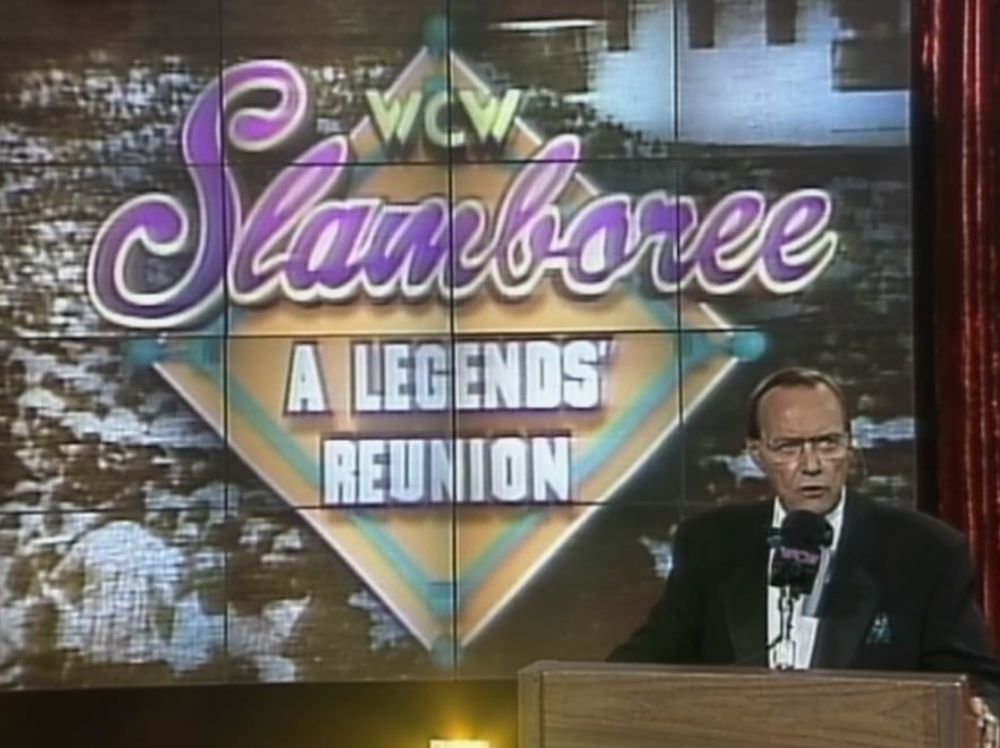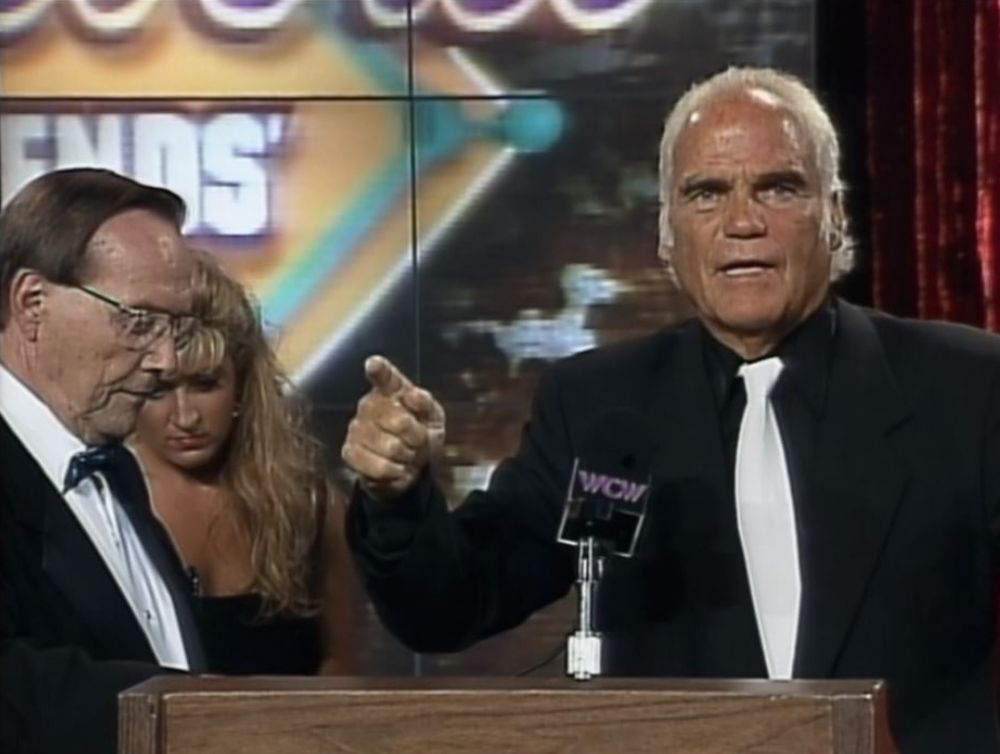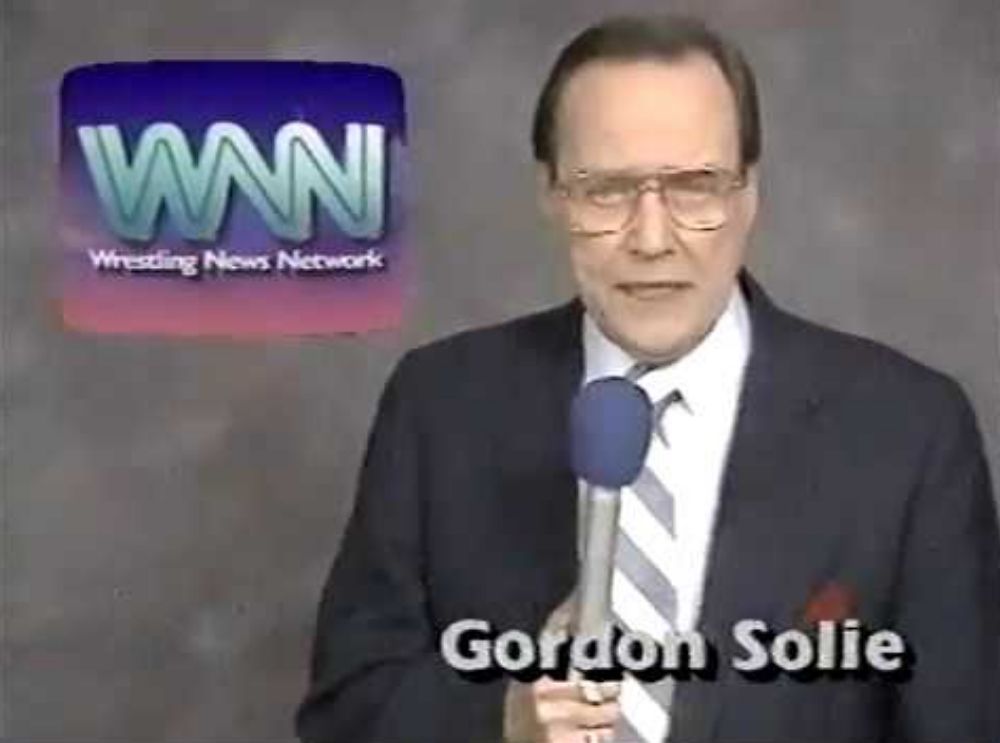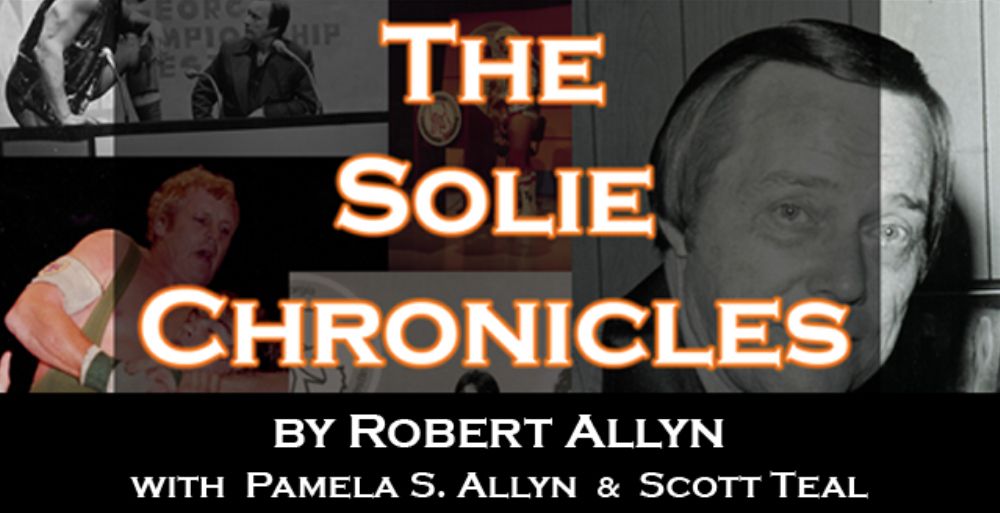Ask any fan who the greatest commentator in pro wrestling is, and they’ll likely name a veteran announcer like Jim Ross. That’s not an incorrect assessment, but if one asks Jim Ross himself, he’d probably say Gordon Solie, and many older fans would likely agree. From the 1960s to the early 1990s when he worked for WCW, Gordon Solie was the voice of wrestling, functioning not only as a play-by-play commentator, but also as an interviewer.
Solie was pretty much the blueprint for wrestling commentators, but many younger fans likely don’t know much about this legend. Let’s take a look at Solie’s career from his early days to his last broadcasts, as well as some of the classic phrases he coined while calling matches.
10 Started Out In Sports Radio
Born in 1929 in Minneapolis, Minnesota, Gordon Solie grew up studying radio in high school, gaining some broadcast experience before serving in the Air Force. After his discharge in the early 1950s, Solie moved to Tampa, where he found a job working in sports radio in Tampa.
As a journalist, he would find himself working as a stringer (or freelancer), becoming the go-to guy covering minor league sports as well as less high-profile sports like stock car racing and pro wrestling.
9 Very Serious About His Job
As one might imagine, his radio coverage of wrestling led to Gordon Solie entering the business himself. His first gig was working for wrestler/promoter Cowboy Luttrall — sometimes spelled “Luttrell” — announcing and conducting interviews for $5.00 a night while also working his day job.
While the money wasn’t much, Luttrall’s advice would be indispensable: “It’s like your paycheck. Treat it very seriously.” Solie spent his career doing just that, reportedly going as far as letting wrestlers put him in holds, so he could understand just how powerful they were, and refusing to learn performer’s real names, so he would never slip up.
8 Called Matches For Championship Wrestling From Florida
Cowboy Luttrall’s Tampa-based promotion, started up in 1949, would eventually evolve into Championship Wrestling From Florida once Eddie Graham became a co-owner of the promotion in the early 1960s. With the change, Gordon Solie soon transitioned to becoming part of the commentary table.
It wasn’t long before Solie became CWF’s lead commentator, and consistently called matches for its weekly syndicated show. Unfortunately, Graham would commit suicide in 1985 and financial trouble would lead to CWF folding in 1987.
7 Worked For Georgia Championship Wrestling
While Gordon Solie was the voice of Championship Wrestling From Florida, the promotion was a regional presence. Solie also worked for promotions in Alabama, Puerto Rico, and Georgia, gaining national exposure with the third.
Georgia Championship Wrestling was broadcast on Ted Turner’s TBS from the mid-1970s to the mid-1980s, until the infamous “Black Saturday” incident where Vince McMahon bought GCW to take its timeslot. In response, GCW booker Ole Anderson started up Championship Wrestling From Georgia, and tapped Solie to continue commentating for Georgia wrestling.
6 Had A Number Of Famous Phrases
Like any pro wrestling commentator worth remembering, Gordon Solie had a number of famous go-to phrases that he would use while calling matches, some of which continue to show up in modern broadcasts. Solie was the one who coined the phrase “crimson mask” for when a wrestler had a bloodied face, and famously pronounced “suplex” as “su-play.”
When signing off of Championship Wrestling From Florida, Solie would say “So long from the Sunshine State,” which he modified for Georgia shows into “So long from the Peach State of Georgia.”
5 Started Working For WCW In 1989
Gordon Solie was no stranger to Jim Crockett Promotions, the ever-expanding entity that would eventually be purchased by Turner Broadcasting in 1888 and rebranded as World Championship Wrestling. In the early 1980s, Solie did commentary for JCP’s landmark Starrcade shows in 1983 and 1984.
In 1989, Solie officially became a part of the newly christened WCW, working with the aforementioned Jim Ross and Jim Cornette on various shows including World Championship Wrestling, Power Hour, and Clash of the Champions.
4 Headed WCW’s Short-Lived Hall Of Fame
Mere months after WWE introduced its Hall of Fame in 1993, WCW established one of its own that appeared to be more ambitious than the competition’s. While WWE’s amounted to a video package and a non-existent physical location, WCW actually televised its induction ceremonies and planned for a physical location at Atlanta’s CNN building.
Gordon Solie not only hosted the induction ceremony, but he was also head of the committee that chose inductees, focusing on fully retired wrestlers who performed for the National Wrestling Alliance. Solie himself would be inducted into the WCW Hall of Fame in 1995.
3 Quit WCW Over A Hall Of Fame Induction
However, politics in the WCW Hall of Fame committee would eventually lead to Gordon Solie’s departure from the promotion entirely. In 1995, WCW signed WWE star Macho Man Randy Savage and there were plans to induct his father, Angelo Poffo, in the Hall of Fame. Solie objected to this decision, which he felt was a political maneuver orchestrated by Savage himself.
Moreover, Angelo Poffo was a thorn in the side of the National Wrestling Alliance, as he operated a rival “outlaw” promotion that competed with the NWA. But the committee opted to induct Poffo despite Solie’s protestations, so Solie resigned from the company.
2 His Final Broadcasts
By the early 1990s, Gordon Solie’s output as a commentator decreased, with the legendary announcer often working on WCW’s minor shows. Solie’s big commentary gigs would be for the 1994 and 1995 editions of the Slamboree pay-per-view, which had the theme of “Legends Reunion” and featured some older legend wrestlers on the card.
Gordon Solie’s final broadcast — not just WCW, but entirely — would be a 1995 episode of WCW Pro. In 1999, Solie was approached about calling the infamous Heroes of Wrestling nostalgia show, but health issues prevented this.
1 Solie’s Family Put Together The Book He Always Wanted To Write
Gordon Solie sadly died of throat cancer in 2000, with his family subsequently spending the decade working to solidify his legacy. Solie spent decades keeping notes about his life and career in the hopes of writing an autobiography, all of which he left to his daughter, Pamela Solie Allyn.
Allyn worked with her husband Robert Allyn and frequent wrestling book co-writer Scott Teal to piece together all these notes to form a clear picture about the legendary announcer, which was finally published in the late 2000s as The Solie Chronicles.

